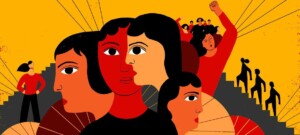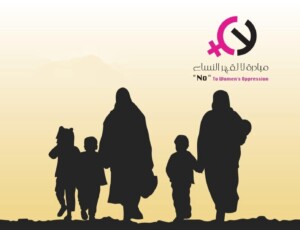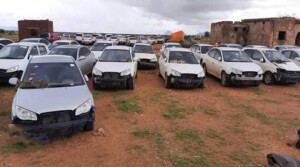El Burhan UN speech: ‘Sudan will establish real democracy and civilian rule’
Sudan’s chairman of the Transitional Sovereignty Council and Commander of the Sudan Armed Forces (SAF), Lt Gen Abdelfattah El Burhan, addressed the 77th United Nations General Assembly session on Friday.
 Lt Gen Abdelfattah El Burhan addressing the 77th United Nations General Assembly session (Photo Credit: UN Photo-Cia Pak)
Lt Gen Abdelfattah El Burhan addressing the 77th United Nations General Assembly session (Photo Credit: UN Photo-Cia Pak)
Sudan’s chairman of the Transitional Sovereignty Council and Commander of the Sudan Armed Forces (SAF), Lt Gen Abdelfattah El Burhan, addressed the 77th United Nations General Assembly session on Friday.
El Burhan began his speech by first calling for cooperative action and “multilateralism in seeking sustainable solutions to global challenges, in order to reduce the repercussions for people around the world”.
The Transitional Sovereignty Council head then proceeded to state that he wished to “establish real democracy”, adding that “fair, free, and transparent elections” would commence at the end of the transition period in order to “establish civilian rule that represent all Sudanese people”, El Burhan said.
The Sudanese junta leader also lamented the trilateral mechanism’s work in the region saying, “in order to promote national understanding, we have provided all the necessary support to the AU-IGAD-UNITAMS Trilateral Mechanism, this mechanism has done a lot of work, but has yet to achieve what was required of it. This has made debates on national consensus more complicated”, he stated.
El Burhan also emphasised how signing the Juba Peace Agreement “decreased the conflict in Darfur and provided stability and security to the region”, the military leader said.
He called on stakeholders in Darfur to “join the caravan of peace and to work together to build a future of Sudan”. El Burhan also asked the international community to strengthen their efforts, to “develop peace in line the Juba Peace Agreement”.
Lt Gen Abdelfattah El Burhan addressing the 77th United Nations General Assembly session
El Burhan also highlighted how “Sudan’s leading role” improved security, development, and peace in Africa, with South Sudan, Somalia, Democratic Republic of the Congo (DRC), and Chad among other countries.
The junta leader stated that Sudan was the coordinator alongside the African Union to reach a peace treaty in the Central African Republic. He went on to add that “Sudan is also working in maintaining security in Libya”.
“We are fighting against organized crime too”, El Burhan said and added that “Sudan is sparing no efforts to achieve our sustainable development goals”, and “we reiterate our full commitment to realising the sustainable development agenda for 2030”, he stated.
The issue of Sudan’s external debt was a focal point in El Burhan’s UN address, where he said that the international community should honour their commitments “made in the Paris and Berlin meetings”, and that Sudan “completed all the legislation required to benefit from Debt relief”, he stated.
He stated among the problems caused by droughts and floods in the region, the “proliferation of small arms and light weapons”, which was a “scourge that was made even more complicated by Sudan’s competition for water, mineral and pasture resources”, further entrenching the proliferation of weaponry in the region.
El Burhan finalised by addressing the Security Council reform, saying that he supported the common African position, but said that “far reaching reform was needed to address the negative effect of current practises”, he said.
Criticism of El Burhan’s foreign visits
In an interview with Radio Dabanga, Dr Muhamed El Mahdi Hassan head of the political bureau for the National Umma Party, stated that the “international isolation of the coup will not be affected by his resent visits”.
Hassan stated that El Burhan’s visit to London for the funeral of Queen Elizabeth II was a result of Sudan’s historic link with the UK, and his United Nations General Assembly summit appearance is linked with the international support for civilian rule and the end of the coup, not his military regime.
The National Umma Party leader attributed El Burhan's participation in the UN summit to the fact that the agenda includes “discussing the political situation in Sudan and the Renaissance Dam”, Hassan said.
'Unconstitutional visa'
Saleh Mahmoud, a leader of the Communist Party of Sudan, member of the Darfur Bar Association, human rights lawyer and winner of the Sakharov Prize, criticised Washington for allowing El Burhan to enter the USA, asserting that the granting of the visa “has no constitutional legitimacy, as Sudan is ruled without a constitutional basis”.
In an interview with the Sudan Today programme on Radio Dabanga, Mahmoud argues that “the US constitution does not allow the Washington administration to deal with leaders of a coup authority”, and laments that “we do not see signs from the US administration of taking measures against the authority”.
Mahmoud asserts that that the proposed constitution would enable the military to rule the country, describing El Burhan’s pledges to hand over power to an elected government as “empty”. He also described the European Union’s warning of an imminent economic collapse in Sudan as “blackmail that comes within the framework of urgency to find a civilian cover for the current regime,” as he put it. “The aid that El Burhan is begging at the present time from the international community does not benefit the Sudanese public.”











 and then
and then